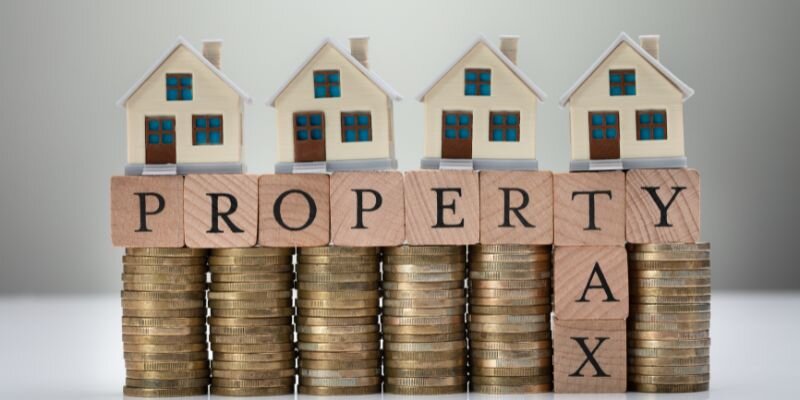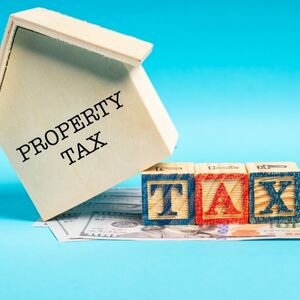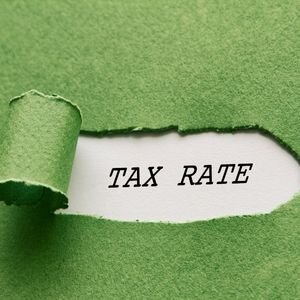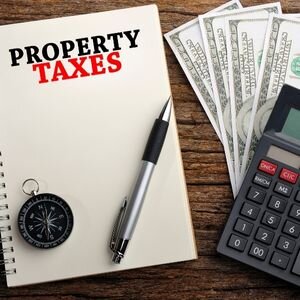
To find out about Los Angeles property tax rates, both homeowners and buyers may find it difficult. Knowing how these things work is important because they affect how you plan your finances and buy property. There are many neighborhoods in Los Angeles, and each one has its own way of handling taxes. This article talks about how property taxes are figured, what factors affect them, and how they stack up against other places’ taxes.
Key Highlights
- Financial planning and investing options for homeowners are greatly affected by their understanding of property taxes.
- Property taxes are a primary source of revenue, funding essential services such as infrastructure, education, and public safety.
- Proposition 13 caps tax rates and annual valuation increases, ensuring taxpayer stability and predictability.
- Property tax assessments consider location, property type, and market demand, with reassessments triggered by changes to the property.
- Homeowners can effectively reduce their property tax burdens by taking advantage of available exemptions and rebates.
Overview of Property Tax in Los Angeles, California

Property taxes in Los Angeles are a big part of the business there. People who live in the area and people who want to invest need to know how these taxes work for all kinds of businesses. Property taxes bring in money for the government and help pay for local services. You can see how these taxes affect economic plans to help the city grow and be healthy by looking at the basics.
Understanding the Basics of Property Tax
Property taxes are an important part of Los Angeles’s economy because they bring in money that pays for many public services. If you live in Los Angeles or own land there, knowing how property taxes work can have a big effect on how you plan your finances and invest your money. The county’s property tax is based on an assessed value method. This means that each property is taxed based on a percentage of its assessed value, which is also known as the base rate. The county assessor’s office sets this rate. They do regular evaluations of homes to make sure that taxes reflect their current market values. Like the rest of California, Los Angeles follows the rules set out in Proposition 13. This is a state law that is meant to keep property tax rates stable and reliable. The taxed value of a property is limited by this rule so that it doesn’t go over 2% unless the owner changes. But things like repairs or new buildings can cause reassessments, which can change the amount of tax that needs to be paid. The evaluation method takes many things into account, like the property’s location, type, and the demand in the market.
In Los Angeles, property taxes are split into secured and unsecured taxes. Secured taxes are levied on real property, such as land, homes, and buildings. Unsecured taxes are for personal property, such as business equipment. This difference matters because billing and penalties are handled differently. Secured property taxes are typically paid in two installments, each covering half of the annual amount. The county assessor determines property values, and the tax collector handles billing and payment collection. Together, they ensure the system functions properly and funds essential services such as schools, healthcare, and public safety. Knowing how this process works can help property owners better understand and manage their taxes.
Importance of Property Taxes in Economic Planning
The city of Los Angeles relies heavily on property taxes to pay for essential public services and new infrastructure. The growth and well-being of these cities are facilitated by the prudent utilization of their resources. Efficient economic planning and fair policies rely on stable property tax collections. Essential services like roads, parks, and public transportation are funded through property taxes. Residents’ quality of life, as well as the local economy, are both improved by these renovations.
Property taxes also help fund schools and educational programs in Los Angeles, ensuring that students have the necessary resources. These taxes influence how the city plans and utilizes land, guiding growth in a manner that supports strong, sustainable communities. By funding housing and mixed-use projects, property taxes help prevent urban sprawl and encourage innovative land use. Fair tax policies ensure that no group pays more than its fair share, which fosters trust and stability. City planners, taxpayers, and officials collaborate to maintain a transparent and responsive tax system. The system also offers incentives for initiatives such as green buildings and affordable housing, supporting both the environment and the need for more housing as Los Angeles’ prosperity continues to grow. Everyone needs to understand how it shapes the city’s future. If rising property taxes are affecting your home ownership plans, cash home buyers in Los Angeles can help you sell your property quickly without the stress of traditional listings.
How Property Taxes are Calculated in Los Angeles
Knowing how property taxes are calculated in Los Angeles is essential for homeowners and investors. The process consists of several parts that contribute to your total tax bill. The central part is the base rate, which is a portion of your property’s assessed value. The county assessor plays a key role in this process. Understanding these steps helps make sure taxes are fair and support public services.
Components of the Base Rate in Los Angeles
The base rate is a crucial component in determining property taxes in Los Angeles. Property taxes are based on your property’s assessed value, which the county assessor sets using recent sales, improvements, and other factors. The base rate is typically around 1% of the assessed value, but it can be higher if local voters approve additional charges for services such as firefighting or sanitation. These additional charges help fund essential public services. Los Angeles follows Proposition 13, which sets the base rate and limits yearly increases in assessed value to 2% unless the property is sold or undergoes significant changes in ownership or use. Knowing these rules helps property owners plan their finances, since stable taxes make it easier to predict yearly costs.
In order to figure out how much property tax you owe, you start with the base rate tax. Knowing this base helps you figure out how much tax you might have to pay. You can use some online tools and calculators to get an idea of how much your taxes will be, including any extra fees like city bonds or special assessments. These tools help you make a budget for buying a house. The base rate is set so that there is enough money for necessary services while also taking into account what taxpayers can afford. In Los Angeles, property owners can better plan and handle their money when they know how the base rate works. If you’re considering selling your home and want to understand how our process works, Blue Wave Home Buyers can help guide you through a quick and transparent sale.
The Role of County Property Assessments
County property assessors determine the property tax by examining factors such as location, size, condition, and recent sales of similar properties. This helps ensure that taxes are fair and reflect current market values. There are two types of property taxes: secured (for land and buildings) and unsecured (for items such as business equipment). Each type has its own billing and payment schedule. Secured taxes are usually paid in two installments in the assessor’s year. The assessor’s office updates property records frequently to ensure accuracy, which helps the tax collector ensure that everyone pays their fair share. If you think your property assessment is wrong, you can appeal it. This process helps maintain a fair and transparent system. Overall, county assessments are the foundation of the property tax system in Los Angeles.
Frequently Asked Questions: Property in California
California’s property tax system can be intricate, particularly for individuals seeking to purchase a home in Los Angeles. Here, we address two common questions: how frequently property assessments occur and how state tax laws impact homeowners. Knowing these details helps with financial planning and makes it easier to follow state rules.
How Often Are Annual Property Assessments Conducted?
The amount that California homeowners will pay is based on how much the land is worth. The county assessor’s office usually looks at property values once a year to make sure they are in line with market trends and take into account any changes, like improvements. According to Proposition 13, the assessed value can only go up by 2% each year unless the land is sold or goes through major changes. In this way, tax payments stay the same. To figure out values, the assessor looks at recent sales, the property’s features, and similar houses that have recently sold. This process is hard to do in Los Angeles because there are so many different kinds of homes. There are also different types of assessments, one for secured taxes (like real estate) and one for unsecured taxes (like business property). GIS and data analysis are two new technologies that help make estimates more accurate and clear. You can argue if you think your answer is wrong. You can plan your funds and California’s if you know how and when assessments happen.
Impact of California’s Tax on California’s TaxCalifornia’seowners
California’s property tax laws, particularly Proposition 13, have a significant impact on homeowners. Proposition 13, passed in 1978, caps property tax at 1% of a property’s assessed value, plus extra charges for local bonds approved by voters. It also limits yearly increases in assessed value, which helps keep taxes stable. However, this system often benefits long-term homeowners, while new buyers may pay much higher taxes because their properties are reassessed at current market prices. These variables can affect how easily people can move or afford homes. Property taxes fund schools, infrastructure, and safety services, but the limits set by Proposition 13 sometimes compel cities to seek alternative means of raising money. California also offers tax relief programs for seniors, low-income homeowners, and veterans, including the Veterans’ Exemption. These programs help lower annual tax bills for those who qualify. Homeowners should educate themselves about these options and stay informed about potential changes to tax laws, enabling them to take advantage of any available tax opportunities.
Tax Rate Variations Across Los Angeles

Property tax rates in Los Angeles County can vary significantly due to different local policies, economic conditions, and the unique needs of each community. Knowing about these essentials is essential for homeowners and buyers. This section examines the primary factors that influence property tax rates, including assessments, local services, and special neighborhood taxes, to provide a broader understanding of the context.
Factors Influencing Property Tax Rates
Many factors affect property tax rates in Los Angeles County. The primary factor is the assessed value of your property, which is set by the county assessor and is based on the market value, as well as any changes or improvements. Fair necessities are essential because they decide how much tax you pay. The need for public services, such as schools, police, road repairs, and sanitation, also affects tax rates. Some neighborhoods require additional funding for these services, which may result in higher tax rates.
The city of Los Angeles follows all state regulations, including Proposition 13, which caps property taxes at one percent of the assessed value plus any other levies that the voters approve. New buyers may end up paying far more than long-term owners due to the law’s assessment of homes at current prices, which helps keep taxes consistent. If you’re planning to purchase real estate in Los Angeles, you must familiarize yourself with Proposition 13.
Property tax rates can also be raised for special districts and local projects. People living in certain locations may have to pay more in taxes since special districts have been set up to pay for things like water infrastructure and school renovations. Tax increases for specific projects can also be achieved by voter-approved local legislation. Because of the potential effect on their property taxes, they would do well to keep abreast of district news.
The economy and real estate trends also affect property tax rates in Los Angeles. When property values increase, assessments and taxes can also rise. If the market slows down, values may stay the same or drop, which can limit tax increases. Because of these ups and downs, property owners should be aware of possible changes in their tax bills.
Understanding what affects property tax rates in Los Angeles helps homeowners and buyers make better choices. By looking at assessments, local services, state laws, and the economy, you can better predict your tax bills and plan your investments. Keeping up with local news and changes in the law will help you handle the property tax system more easily.
Strategies for Reducing Property Taxes in California
Many people in California, particularly in Los Angeles, face high property taxes. While this can be tough, there are ways to lower your tax bill. Homeowners can utilize exemptions and rebates to reduce their expenses. Being aware of these options and staying informed about new programs can help you manage and reduce your property taxes.
Exemptions and Rebates Available to Homeowners
California homeowners can get a number of exemptions and refunds that can help lower their property taxes. These choices can really help you save money and make it easier to handle your main budget. The most common type is an exemption, which lowers a home’s taxed value. Your main home’s estimated value goes down by $7,000 because of the Homeowners’ Exemption. This may not seem like a big deal, but it does lower your tax bill, and most homes can get it.
Additional financial relief is available to veterans through a unique exemption that reduces the assessed value of their home. The state of California is doing its bit to help veterans. Additional incentives and rebates may be available to help low-income families and seniors with property taxes. Your family’s spending habits can change drastically after you find out about these services.
To get an exemption, it’s essential to know what’s available and act quickly. Homeowners should consult their county tax office to learn about their available options. Many offices offer help and information on how to apply for or renew exemptions. Attending community workshops or seminars can also help you stay informed about new programs and changes in the law.
Keeping your records up to date, such as noting significant changes to your home or ownership, can help you qualify for exemptions. Report major renovations or ownership changes promptly, as they may affect your eligibility for rebates. Good documentation enables you to get the tax relief you deserve. As tax laws change, staying informed and proactive can help you save more and avoid paying extra. Utilizing these exemptions and rebates can simplify your long-term financial planning. If you’re based outside the city and need a quicker financial solution, you can also sell your house fast for cash in Lancaster through Blue Wave Home Buyers for a seamless experience.
The Future of Property Taxes in Los Angeles

The future of property taxes is essential for homeowners, investors, and Californians. As California’s economy evolves, property taxes remain a steady yet sometimes debated source of revenue. Changes to Proposition 13, tax rates, or the introduction of new policies could all change how property taxes are calculated. Staying informed will help you be ready for any changes in your tax bills.
The state of California is officially ratifying new laws.
California’s tax system is frequently reviewed and may be revised, with Los Angeles often leading these discussions. Proposition 13, passed in 1978, limits property taxes to 1% of the assessed value and caps yearly increases at 2% unless the property is sold, undergoes significant ownership changes, or changes in use. While this law maintains steady taxes, some argue that it creates funding issues for public services. As Los Angeles grows, leaders consider possible changes to Propositions to support the city’s needs.
One change that could be made is to stop taxing commercial buildings. Right now, both commercial and residential properties are protected the same way. But some supporters of a split-roll tax want to tax business properties based on their current market values instead of their historical values. This could bring in more money from big businesses without making taxes higher for people who live in their own homes. Property taxes in Los Angeles and all over California could go up or down a lot if this change is approved.
Besides changes to Proposition 13, new tax ideas are being discussed to address issues like climate change and affordable housing. These could mean new taxes to fund green projects or build more homes, supporting state and city goals for a better environment and more housing options. Lawmakers will need to strike a balance between raising sufficient funds and keeping taxes fair for all.
Local governments may also rethink property taxes when facing financial challenges. If the real estate market changes or budget problems arise, Los Angeles County may adjust tax rates or implement a temporary tax surcharge for specific projects. When considering these changes, residents and property owners should actively participate and express their opinions.
Property owners in Los Angeles stay informed about possible changes to tax laws. Getting involved in community groups, attending local meetings, and speaking up can help shape tax policies. To discuss your options or get professional guidance on selling your home, don’t hesitate to contact Blue Wave Home Buyers today. Being aware of new laws enables you to plan your finances and taxes more effectively, and being active allows you to make informed decisions that affect you.
In summary, California is updating its tax system to address budget issues, which may result in changes to property taxes in Los Angeles. Residents and property owners need to stay informed and involved. This helps create fair tax policies and enables you to plan for future financial needs as the economy evolves.
Understanding how property tax rates work in Los Angeles is crucial for both homeowners and potential buyers. Since rates depend on property values and local charges, staying informed helps you plan your finances. By learning about assessments and exemptions, you can manage your costs and handle any issues you’re facing. Knowing the system enables you to make better decisions, whether you’re checking your taxes or purchasing a home.
Helpful Los Angeles Blog Articles
- Selling A House In Poor Condition In Los Angeles, CA
- HOA Foreclosures: Can Your Los Angeles, CA, Home Be Taken?
- How To Recognize A Bad Realtor In Los Angeles, CA
- Comprehensive Guide To Selling Your Fire-damaged House In Los Angeles, CA
- Learning About Los Angeles, CA MLS Home Listing Costs
- Los Angeles, CA, Property Managers
- Free Things To Do in Los Angeles, CA
- Understanding The Legalities Of Selling Estate Property In Los Angeles, CA
- Fun Facts About Los Angeles, CA
- Is Los Angeles, CA, Safe
- How To Seamlessly Switch Real Estate Agents In Los Angeles, CA
- Los Angeles, CA, Neighborhood Map
- Capital Gains Tax Calculator Los Angeles, CA
- Closing Costs Calculator Los Angeles, CA
- Cost of Living Guide Los Angeles, CA
- Understanding Property Tax in Los Angeles, CA
- How to Attract Buyers for Distressed Property in Los Angeles, CA
- Can an Executor of a Will Sell Property in Los Angeles, CA?
- Can I Rent Out My House During Divorce in Los Angeles, CA?


